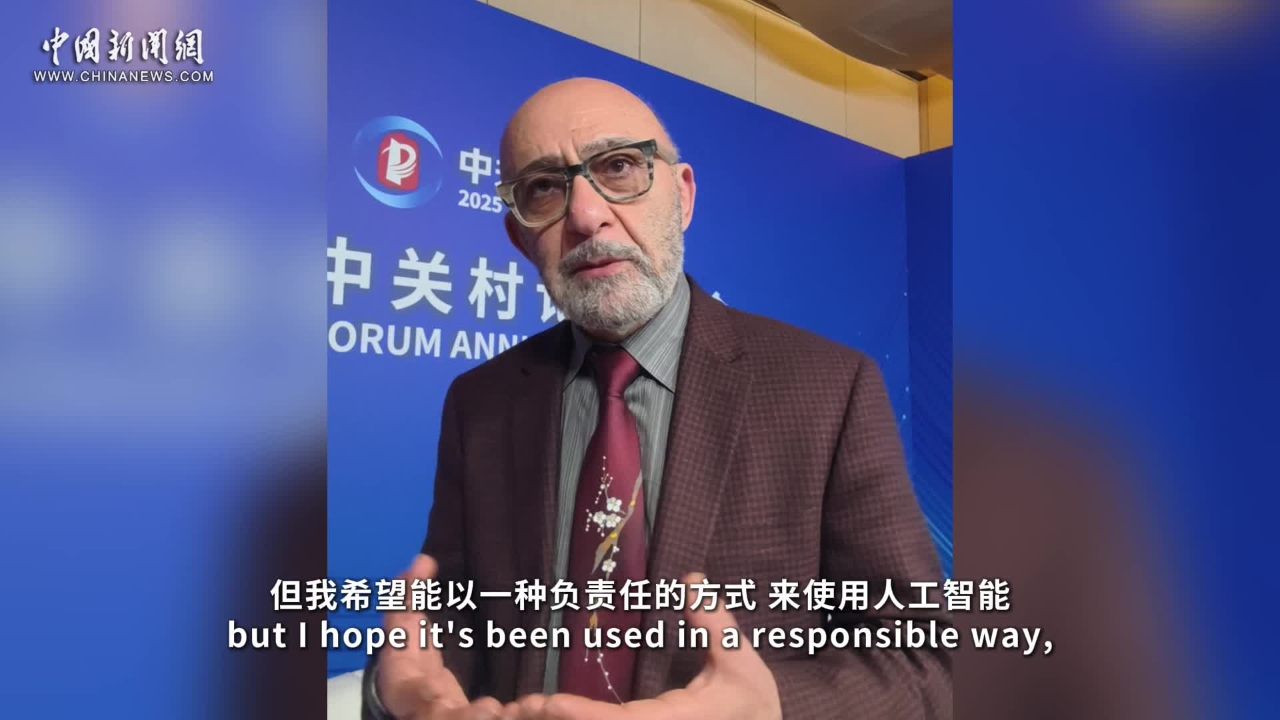Experts highlighted the role of artificial intelligence and digital technologies in accelerating green industrial upgrades and advancing global sustainable development at the 2025 Zhongguancun Forum.
Speaking at the Carbon Peak and Carbon Neutrality Science and Technology Forum, Ding Chibiao, vice-president of the Chinese Academy of Sciences, said AI is reshaping energy systems and driving China's dual carbon goals.
"AI is a cornerstone of innovation for future energy structures, driving green transitions," Ding said. China aims to peak carbon emissions before 2030 and reach carbon neutrality before 2060.
Ding noted that AI adoption has already improved efficiency in high-carbon industries such as chemicals, aligning with the academy's strategic action plan for science and technology supporting carbon peak and carbon neutrality released in 2022. He pledged deeper interdisciplinary collaboration to advance AI-enabled low-carbon energy solutions.
Ye Mao, a researcher at the academy's Dalian Institute of Chemical Physics and head of its intelligent chemical engineering team, detailed progress in AI-driven chemical engineering.
Since 2016, a team led by Liu Zhongmin, the institute's director and an academician at the Chinese Academy of Engineering, has pioneered AI applications in the field. Last year, they launched Chem-ELLM, a large model for autonomous chemical process design, followed by an upgraded Chem-ELLM 2.0 in November.
"The new version significantly improves capabilities in catalysis, safety and foundational chemistry, broadening industrial applicability," Ye said.
More than 50 chemical companies have tested the model, with adoption growing steadily. However, Ye said traditional engineering and AI-human collaboration will continue during the transition.
"Building an intelligent chemical ecosystem requires time, but it will boost efficiency, safety and support China's energy revolution," he said.
At the International Forum on Sciences for Sustainable Development — part of UNESCO's International Decade of Sciences for Sustainable Development (2024-2033) — global experts examined digital technology's role in achieving the United Nations' 2030 Agenda for Sustainable Development.
Guo Huadong, an academician at the Chinese Academy of Sciences and director of the International Research Center of Big Data for Sustainable Development Goals, unveiled the Beijing Initiative on Digital Science and Technology for Sustainable Development. The plan calls for scaling AI, big data, the internet of things and space technology to combat climate change, biodiversity loss and poverty.
"Digital tools are key to optimizing energy use, cutting emissions and improving resource management," Guo said. The initiative also advocates global platforms for sharing digital resources, integrating technology into policymaking and boosting public sustainability literacy.
Highlighting China's contributions, Guo said SDGSAT-1, the world's first science satellite dedicated to the 2030 agenda, has delivered more than 420,000 datasets to 104 countries since its 2021 launch. The data aids in monitoring urban heat islands, assessing emissions and disaster response.


















































 京公網(wǎng)安備 11010202009201號
京公網(wǎng)安備 11010202009201號